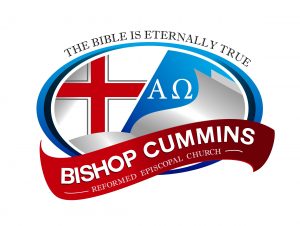This month we continue on with the theme of reading Scripture with a daily systematic plan in mind.
The plan I utilize as I read through Scripture is the Lectionary found in the front of the Reformed Episcopal Book of Common Prayer. In utilizing this plan, I am not suggesting this is the only way to read the Scriptures, but it is a plan that has worked for me and that I have found helpful. By using the Daily Lectionary, you will be reading through large sections of Scripture in a year’s time and connecting to the various books of both Old and New Testaments as well as their major themes. Although the Daily Lectionary does cover every book of the Old Testament, it does not have you read through every chapter of every book of the Old Testament.
Jesus says this of Himself in John 5:39, “You search the Scriptures because you think that in them you have eternal life; it is these that testify about Me;”
As Jesus says these things, the Jewish religious leaders are arguing with Him since they don’t believe He is the promised Messiah. Jesus goes on to make this statement about the spiritual condition of the Jewish religious leaders in John 5:45-47, “45 Do not think that I will accuse you before the Father; the one who accuses you is Moses, in whom you have set your hope. 46 For if you believed Moses, you would believe Me, for he wrote about Me. 47 But if you do not believe his writings, how will you believe My words?”
Jesus criticizes them not only because they reject His words and message, but even before that, they rejected Moses’ words and message which were about the Lord Jesus Christ. They won’t listen because they have blinders on their hearts dismissing our Lord’s teaching about Himself. In saying this, Jesus shows that the whole theme of the Old Testament is about His coming into the world to save us from sin and death by His life, death, and resurrection.
One very helpful statement is found in the 39 Articles about the relationship between the Old and New Testaments. The 39 Articles are a doctrinal statement for Anglican and Episcopal church bodies to which every Reformed Episcopal clergyman subscribes at his ordination as an accurate summary of the teaching of Holy Scripture. Article VII of the 39 Articles says this,
“VII. Of the Old Testament. THE Old Testament is not contrary to the New: for both in the Old and New Testament everlasting life is offered to Mankind by Christ, who is the only Mediator between God and Man, being both God and Man.”
The article goes on to say this about various parts of the Old Testament, “Although the Law given from God by Moses, as touching Ceremonies and Rites, do not bind Christian men, nor the Civil precepts thereof ought of necessity to be received in any commonwealth; yet notwithstanding, no Christian man whatsoever is free from the obedience of the Commandments which are called Moral.”
This explanation speaks of the moral law, the ceremonial
law, and the civil law of the Old Testament.
This is a good example taken from Scripture on how to read the Old
Testament in light of the New Testament.
The ceremonial law which included the animal sacrifices, the priesthood,
the temple, and the annual religious festivals found its fulfillment in the
death of Christ who suffered once for all for the sins of the world. (Hebrews
10:10-14) We are no longer bound by or
expected to participate in and follow these laws, practices, and religious
festivals since Christ’s death on the Cross is the fulfillment of them. The article next points to the civil law of
Israel. The Law includes all the civil
laws which governed the elect nation-state of Israel once they were in the land
promised to Abraham, Isaac, and Jacob.
There were various laws established in Israel as well as punishments for
those who violated these laws. For
instance, it was a capital offense punishable by execution to worship idols, commit
adultery, be disrespectful toward your parents, or work on the Sabbath. I don’t know whether Israel ever consistently
enforced these laws, but for our present purposes let us note that by the reading
of the New Testament it shows that these civil laws are not required to be
followed by civil governments. Israel was the only elect nation, not just a
secular civil government, and that nation’s relationship with God has been
fulfilled in Christ. By saying that
Israel’s relationship with God has been fulfilled in Christ, I mean that the
Christian Church is the New Israel. (Galatians 3:26-29) There are instances in the New Testament
where Christ and the apostles show that the OT civil law, and its punishments
in particular, are not meant to be followed.
In John 7:58-8:11 a woman is brought to Jesus by the religious leaders who
accuse her of adultery. They urged Jesus
to allow her to be stoned to death.
Jesus words to the religious leaders in John 8:7 were this, “He who is
without sin among you, let him be the first to throw a stone.” Eventually every person left who wanted to
throw a stone because they knew they also had sinned in many ways. Jesus was left alone with the woman. He then said to her in John 8:10,11,
“‘Woman, where are they? Did no one condemn you?’ She said, ‘No one, Lord.’ And Jesus said, ‘I
do not condemn you, either. Go. From now
on sin no more.’”
Jesus did not lay aside the moral law of sexual purity and the sanctity of sexual relations being only in the bonds of marriage, but He certainly laid aside the punishment given by God for Old Testament Israel. The same is true in other places within the New Testament where the principle of God’s moral law within the Ten Commandments is upheld but not the punishment by Old Testament law. One example is found in 1 Cor. 5:9-13 where an immoral man within the Corinthian church is to be judged by the church by excommunication but not by execution, the punishment in the Old Testament law. In these examples I am showing an example of how to read the Old Testament Scriptures in light of their fulfillment by our Lord Jesus Christ in the New Testament Scriptures. May God bless you as you delve into the Old Testament.


